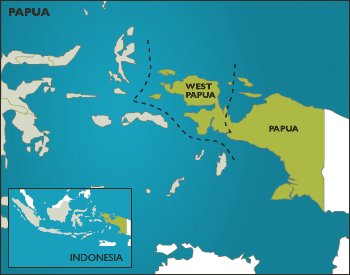Down to Earth No 51 November 2001
WALHI, Indonesia's leading environmental organisation, has scored a landmark victory in its court case against copper and gold miners PT Freeport Indonesia, operators of the huge Grasberg mine in West Papua. Meanwhile, militarisation is being intensified at the mine, as the Indonesian security forces pledge to protect it from alleged threats from "separatist groups".
On August 28th the South Jakarta District Court declared Freeport guilty of violating Indonesian environmental law (No. 23, 1997).

